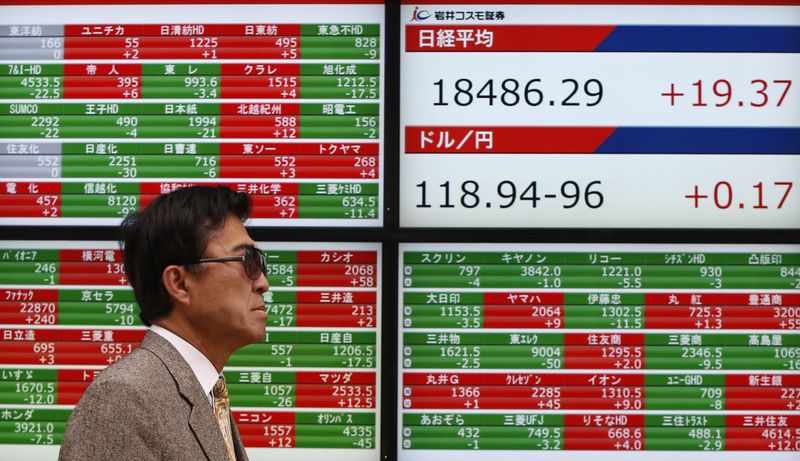This post was originally published on this site
https://i-invdn-com.investing.com/news/LYNXMPEB1O00J_M.jpg
Investing.com– Asian stock markets logged sharp losses on Wednesday, tracking similar declines on Wall Street after higher-than-expected U.S. inflation data pointed to more steep interest rate hikes by the Federal Reserve.
Hong Kong’s technology-heavy Hang Seng index was the worst performer among its regional peers, down 2.7%. Taiwan’s weighted index lost 1.6%, while Japan’s Nikkei 225 index shed 2.1%.
Regional markets tracked steep overnight losses on Wall Street, after the U.S. consumer price index read more than expected for August. Technology stocks were the worst hit as investors priced in weaker earnings from the sector due to an appreciating dollar and higher interest rates.
The CPI reading showed that the Federal Reserve is likely to keep raising interest rates at a sharp pace this year to combat inflation– a scenario that is negative for stock markets.
Traders are now pricing in a high possibility that the Fed will raise rates by 75 basis points next week, as well as the possibility that U.S. interest rates will finish the year at more than 4%.
Markets have also now begun pricing in the possibility of a full 1% rate hike by the Fed next week.
“The external environment of a European energy crisis, a China slowdown, and a strong dollar combined with ongoing interest rate hikes domestically and a slower housing market raise concerns about the growth story heading into year-end,” analysts at ING wrote in a note.
China’s bluechip Shanghai Shenzhen CSI 300 index fell 1.1%, while the Shanghai Composite index lost 0.8%. A Reuters report suggested that the U.S. was considering new sanctions against Beijing to deter a potential invasion of Taiwan, with Taipei seeking similar moves from the European Union.
Potential U.S. sanctions would exacerbate an ongoing economic slowdown in the world’s second-largest economy, after a series of COVID-related lockdowns this year.
Weakness in Chinese markets and rising interest rates have pulled most Asian stock markets lower this year, with the pressure set to continue for the remainder of 2022.
Most Asian economies are also struggling with high inflation, which has been exacerbated by a strong dollar.


